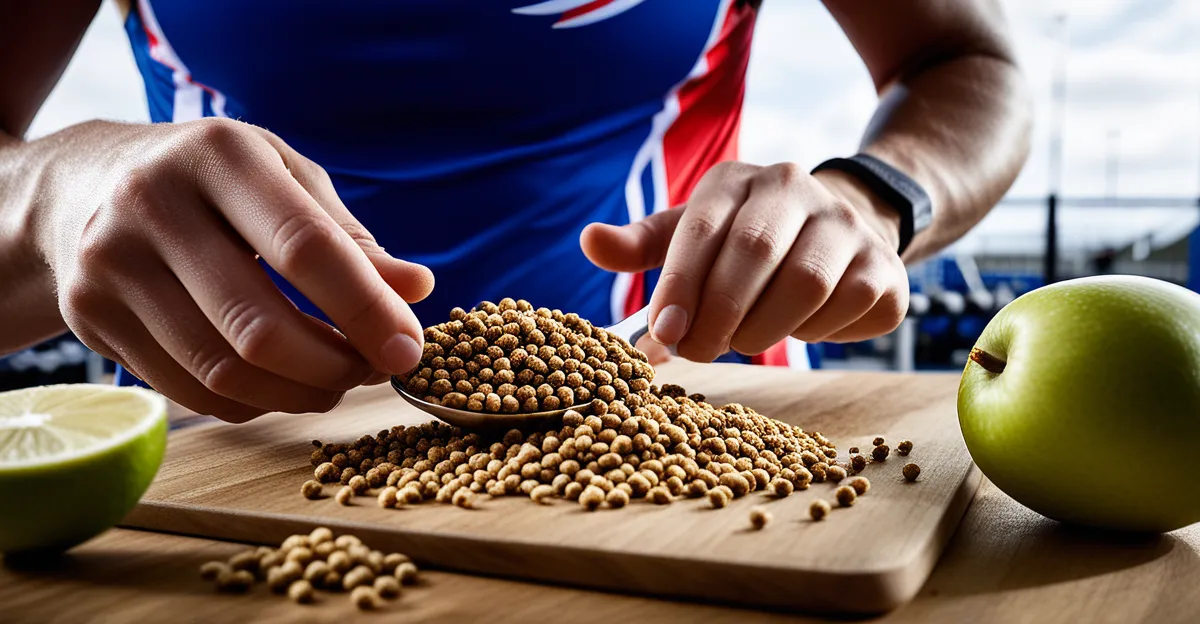The Impact of Nutrition on Athletic Performance in the UK
Nutrition plays a foundational role in athlete performance by directly influencing physical capability and mental focus. In the UK, sports nutrition prioritizes balanced dietary intake to support energy demands, muscle repair, and concentration during competition. Scientific evidence confirms that the right nutritional choices enhance endurance, strength, and cognitive function, essential for peak athlete performance.
Athletes in the UK benefit from diets rich in carbohydrates for energy, proteins for muscle recovery, and fats to support hormone regulation. Moreover, micronutrients such as iron and vitamin D are crucial for maintaining stamina and bone health. Optimal nutrition reduces fatigue and accelerates recovery, allowing athletes to train consistently and perform at their best.
Also to see : How do UK sports teams incorporate diversity and inclusion?
Current UK-specific sports nutrition trends include personalized meal planning and increased emphasis on hydration strategies. Nutritional plans are often tailored to sport-specific demands, recognizing that a sprinter’s needs differ significantly from a marathon runner’s.
The nutrition benefits extend beyond physical outcomes; a well-nourished athlete experiences improved mood, focus, and resilience. This holistic approach underpins the success of many UK athletes by reinforcing their physical and mental readiness through strategic nutrition.
This might interest you : What Are the Unique Challenges Facing Female Athletes in UK Sports Today?
Nutrition Strategies of Elite UK Athletes
Elite UK athletes adopt tailored nutrition plans that align with their specific sports and personal needs, recognizing that an effective UK athletes diet supports both training and competition schedules. These nutrition plans emphasize macronutrient balance, timing, and quality. For example, a middle-distance runner’s diet prioritizes rapid carbohydrate absorption post-workout to replenish glycogen, while a weightlifter may focus more on protein intake to aid muscle hypertrophy.
Common practices among elite performers include:
- Consuming nutrient-dense meals with controlled portions to optimize energy availability.
- Strategic hydration routines to maintain cognitive function and delay fatigue.
- Use of supplements, such as omega-3s and electrolytes, when dietary intake alone might be insufficient.
Case studies highlight that athlete meal examples can include wholegrain carbohydrates, lean proteins like poultry or fish, and plenty of vegetables, reflecting the balance necessary for high athletic output. Moreover, adaptation of diets extends beyond sport to consider factors like training intensity, travel schedules, and recovery needs.
Overall, elite UK athletes rely on nutrition as a dynamic tool, continuously adjusted to meet fluctuating demands, ensuring sustained athlete performance and minimizing injury risk. This adaptability underscores the essential role of precise diet management in competitive success.
Scientific Evidence and Expert Perspectives
Research in sports nutrition UK continuously strengthens the understanding of how diet affects athlete performance. Key scientific studies demonstrate that precise macronutrient timing improves both endurance and recovery. For example, protein intake immediately post-exercise enhances muscle repair, while carbohydrates replenish glycogen stores crucial for sustained energy. These findings guide the frameworks used by UK sports nutritionists to tailor nutrition plans.
Expert opinions from coaches and nutritionists emphasize the importance of personalized nutrition. They note the variability in athletes’ responses to dietary protocols, underscoring that no single plan fits all. This approach aligns with emerging nutrition science for athletes, which advocates for flexibility based on genetics, sport demands, and training cycles.
Current debates often focus on supplement use, vitamin D optimization, and hydration strategies. However, consensus holds that a nutrient-dense, well-balanced diet forms the foundation of success. UK nutrition experts support using evidence-based protocols combined with ongoing monitoring, ensuring athletes achieve consistent performance gains.
Insights from this evolving field reinforce the critical role of scientifically grounded nutrition approaches in maximizing the nutrition benefits for UK athletes, enhancing both short-term competition outcomes and long-term health.
National Guidelines and Support Systems
In the UK, sports nutrition guidelines provide structured frameworks that help athletes optimize their diets for performance and health. These guidelines emphasize nutrient timing, macronutrient balance, and hydration, reflecting the latest nutrition science for athletes. National recommendations encourage tailored approaches, recognizing the individuality of athlete needs and the variability across different sports.
UK governing bodies and organisations, such as national sports institutes, play a pivotal role in disseminating these guidelines and fostering athlete support networks. Their initiatives often include educational programmes, workshops, and easy access to qualified sports nutritionists. This institutional backing ensures that athletes receive evidence-based advice tailored to their specific conditions and competition schedules.
Support systems extend beyond education; many UK programmes integrate multidisciplinary teams including physiologists, psychologists, and dietitians to comprehensively address an athlete’s well-being. Nutritional policy in the UK continually adapts to emerging research, maintaining alignment with international standards while addressing unique local needs.
This cohesive framework of UK sports nutrition guidelines and support mechanisms empowers athletes to implement effective, personalized nutrition plans, thereby enhancing their performance potential and promoting long-term health.
Nutrition for Recovery, Endurance, and Achievements
Effective athlete recovery nutrition hinges on replenishing energy stores and repairing muscle tissue. Post-training meals rich in carbohydrates and proteins accelerate glycogen restoration and muscle protein synthesis, critical for fast recovery. In the UK, runners and cyclists emphasize this nutritional window within 30 minutes after exercise to maximize recovery, promoting consistent training performance.
When exploring endurance nutrition UK, sustained energy release is vital. Athletes often consume complex carbohydrates and electrolytes before and during long-duration events to maintain hydration and delay fatigue. This approach supports cardiovascular efficiency and preserves muscle function, both essential for endurance success.
Nutrition also plays a pivotal role in sports achievements nutrition by reducing injury risk and enhancing performance longevity. Micronutrients such as antioxidants combat exercise-induced oxidative stress, while balanced fat intake supports hormone regulation and inflammation control. UK athletes credit structured recovery protocols and endurance-focused diets for notable achievements across football, athletics, and cycling disciplines.
Understanding these components shows how tailored nutrition strategies holistically influence recovery, endurance, and performance milestones. Implementing optimized nutrient timing and composition enables UK athletes to maintain competitive edge and achieve sporting excellence.






